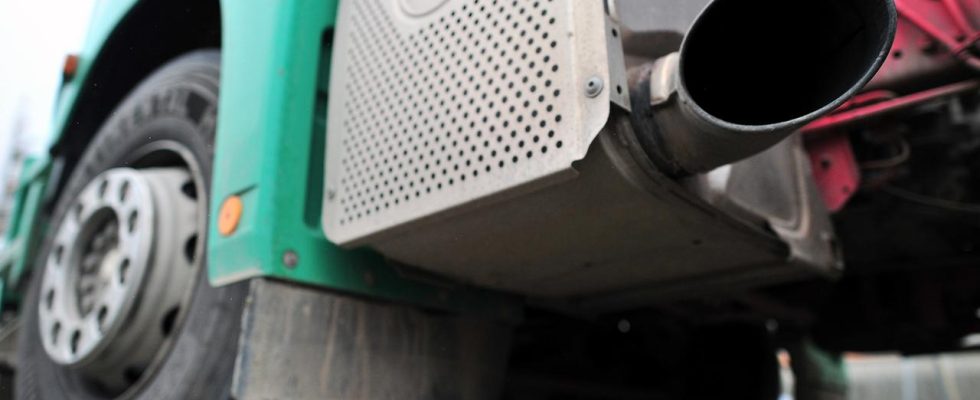The federal government has agreed to even stricter CO2 rules for trucks and buses at EU level. Only after the Chancellery got involved did the FDP-led Ministry of Transport give up its veto.
A majority of EU states have approved plans for stricter CO2 standards for trucks and buses following a last-minute agreement within the federal government. This was announced by the Belgian EU Council Presidency.
The project was surprisingly in jeopardy because the federal government made up of the SPD, Greens and FDP only agreed to approve the new rules at the last moment.
The so-called fleet limits regulate how much climate-damaging CO2 vehicles will be allowed to emit in the future. According to the agreement, CO2 emissions from coaches and trucks should be reduced by 90 percent by 2040 – compared to 2019. The agreement, which has now been agreed among the EU states, must also be approved by the plenary session of the European Parliament.
Another argument at the traffic lights
The decision was – once again – preceded by a coalition dispute in Berlin. Negotiators in Brussels had actually already agreed in principle on the project on January 18th and it was assumed in Brussels that the German government made up of the SPD, Greens and FDP would agree to the plans for the new CO2 emissions standards.
Afterwards, however, the participants at an FDP European party conference spoke out strictly against fleet limits. The FDP-led Ministry of Transport vetoed the planned approval, citing, among other things, a lack of regulation for synthetic fuels. This was only withdrawn after the Federal Chancellery got involved.
According to Federal Transport Minister Volker Wissing (FDP), trucks and buses that run exclusively on e-fuels can now be registered for an unlimited period. “In the negotiations on the EU fleet limits, we successfully ensured that this regulation becomes part of the legal text. Under this condition, we agreed to the new CO2 requirements,” said Wissing. This will create legal certainty for both manufacturers of commercial vehicles and those of climate-neutral fuels.
E-fuels are synthetic fuels that are usually made from water and carbon dioxide. This requires a high amount of electricity. So far it has mainly been chemical plants that produce e-fuels. These fuels have similar properties to gasoline and diesel.
The auto industry also welcomes the EU rule
The automobile industry association had pushed for reliable decisions. Now the understanding was welcomed. It ensures planning security, said a VDA spokesman in Berlin. In order for the ambitious goals to actually be achieved, a sufficiently dense network of electric charging and hydrogen tank infrastructure for heavy commercial vehicles throughout Europe is a crucial prerequisite. Unfortunately, this is currently not even close to being the case.
Federal Environment Minister Steffi Lemke (Greens) sees the new regulations as positive for climate protection and the transport transition. “I am glad that, despite the irritations of the last few days, we have now come to a sensible result that confirms the core of the well-balanced trilogue compromise.”
There is now planning security for companies. “The new regulation of the CO2 fleet limit values that was decided on today provided for openness to all suitable technologies from the outset,” added Lemke, thereby differentiating himself from Wissing’s point of view.
Philip Brost, ARD Berlin, tagesschau, February 9, 2024 5:55 p.m

